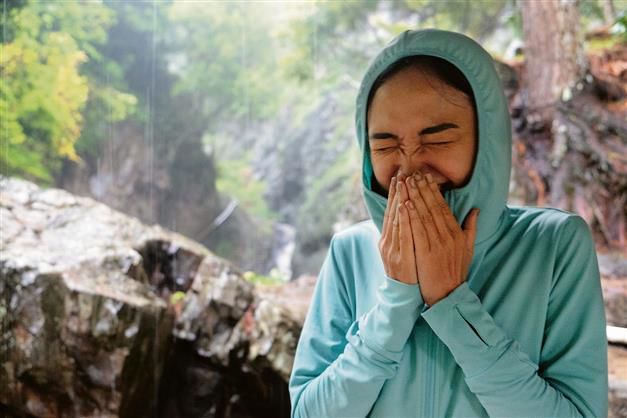Monsoon infections
Despite the respite, monsoon also brings a higher risk of exposure to various viruses, bacteria, and other infections due to the high moisture content in the air.
Dr Puneet Mittal, a consultant physician based in Chandigarh, says viral fever, dengue, chikungunya and malaria are common. “Patients can experience high fever or fever with chills. Wearing long-sleeved clothes and socks reduces the risk of mosquito bites. It’s best to avoid self-medication, particulary antibiotics.”
Adds Dr Vishal Sharma, gastroenterologist, PGI, Chandigarh, “Water-borne infections like cholera and typhoid also rise. Uncooked and partially-cooked foods increase the risk of gastroenteritis and other food-borne diseases. These can cause fever, abdominal pain, vomiting, diarrhoea and blood in stools. There’s risk of dehydration, shock and renal failure. Eat home-cooked food, wash hands before eating and drink clean water.”
Dr Vikas Sharma, Panchkula-based skin specialist, says, “High humidity leads to skin infections, while chronic disorders like atopic eczema, acne, psoriasis tend to worsen. There’s a rise in fungal infections also. One develops itchy, flaky patches, especially in skin folds. Wear loose cotton clothes, use talcum powder to keep the skin dry and avoid tight footwear.” — TNS
Vaccines available in India
Gardasil 9: It offers protection against nine strains of HPV responsible for a majority of HPV-related cancers and infections. The vaccine is approved for use in both males and females aged 9 to 45 years.
Price: Rs 10,850 (approximately) per dose
Gardasil 4: This vaccine targets four strains of HPV (6, 11, 16, and 18), and has been licensed for use in India since 2008.
Price: Rs 2,000 to Rs 4,000 per dose
Cervavac: It is the first Indian-made HPV vaccine by the Serum Institute of India. Approved for girls and boys aged between nine and 26, this vaccine has shown high efficacy in preventing HPV infection, precancerous lesions, and cervical cancer, particularly against HPV types 6, 11, 16 and 18.
Price: Rs 2,000 per dose
A two-dose vial costs Rs 4,000









